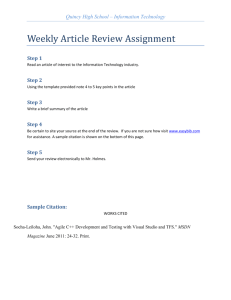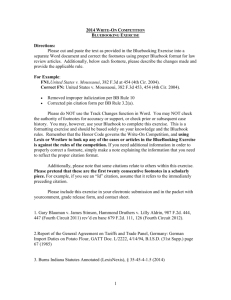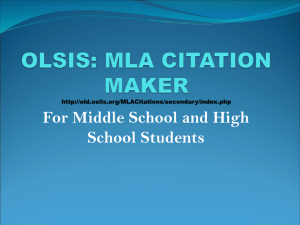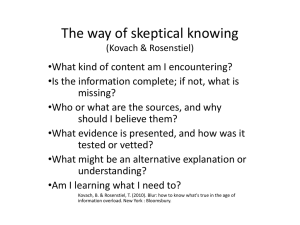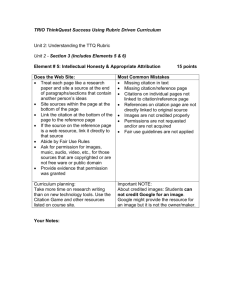LEGAL RESEARCH AND WRITING RECOMMENDED TEXTS
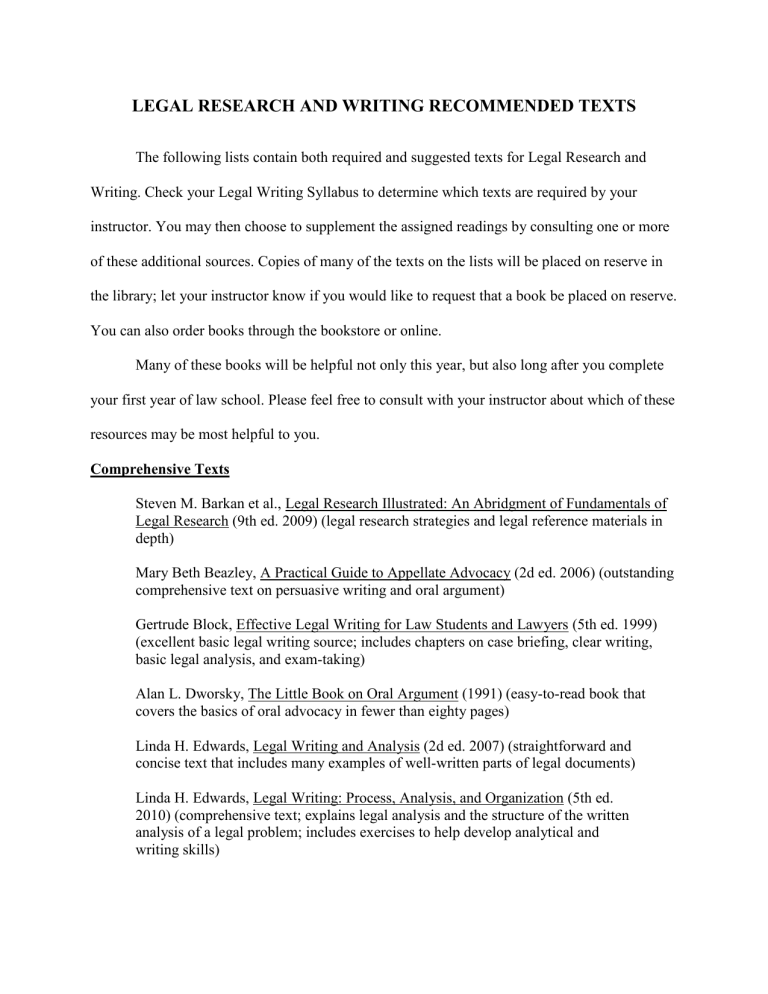
LEGAL RESEARCH AND WRITING RECOMMENDED TEXTS
The following lists contain both required and suggested texts for Legal Research and
Writing. Check your Legal Writing Syllabus to determine which texts are required by your instructor. You may then choose to supplement the assigned readings by consulting one or more of these additional sources. Copies of many of the texts on the lists will be placed on reserve in the library; let your instructor know if you would like to request that a book be placed on reserve.
You can also order books through the bookstore or online.
Many of these books will be helpful not only this year, but also long after you complete your first year of law school. Please feel free to consult with your instructor about which of these resources may be most helpful to you.
Comprehensive Texts
Steven M. Barkan et al., Legal Research Illustrated: An Abridgment of Fundamentals of
Legal Research (9th ed. 2009) (legal research strategies and legal reference materials in depth)
Mary Beth Beazley, A Practical Guide to Appellate Advocacy (2d ed. 2006) (outstanding comprehensive text on persuasive writing and oral argument)
Gertrude Block, Effective Legal Writing for Law Students and Lawyers (5th ed. 1999)
(excellent basic legal writing source; includes chapters on case briefing, clear writing, basic legal analysis, and exam-taking)
Alan L. Dworsky, The Little Book on Oral Argument (1991) (easy-to-read book that covers the basics of oral advocacy in fewer than eighty pages)
Linda H. Edwards, Legal Writing and Analysis (2d ed. 2007) (straightforward and concise text that includes many examples of well-written parts of legal documents)
Linda H. Edwards, Legal Writing: Process, Analysis, and Organization (5th ed.
2010) (comprehensive text; explains legal analysis and the structure of the written analysis of a legal problem; includes exercises to help develop analytical and writing skills)
Bryan A. Garner, The Winning Brief: 100 Tips for Persuasive Briefing in Trial and Appellate Courts (2d ed. 2004) (book on persuasive advocacy often recommended and used by practicing attorneys)
Christina L. Kunz et al., The Process of Legal Research (7th ed. 2008) (teaches legal research as a process; uses many illustrations to explain tasks and sources)
Richard K. Neumann, Jr., Legal Reasoning and Legal Writing: Structure, Strategy, and
Style (6th ed. 2009) (comprehensive text that emphasizes the role of good legal reasoning in effective legal writing)
Richard K. Neumann, Jr. & Sheila Simon, Legal Writing (2008) (comprehensive but concise text that is supplemented by a website)
Jill J. Ramsfield, The Law as Architecture: Building Legal Documents (2000) (provides a unique metaphorical approach to structuring legal documents; may be helpful to students who employ a visual learning style)
David S. Romantz & Kathleen Elliott Vinson, Legal Analysis: The Fundamental Skill (2d ed. 2009) (relatively short book that concisely introduces, explains, and illustrates rulebased, analogical, and policy arguments; also concisely discusses and illustrates the
IRAC writing format)
Helene S. Shapo et al., Writing and Analysis in the Law (5th ed. 2008) (straightforward and comprehensive text addressing how to structure the written analysis of a legal problem)
Amy E. Sloan, Basic Legal Research: Tools and Strategies (4th ed. 2009) (teaches basic legal research skills and strategies; includes many illustrations and an appendix covering useful internet research sources)
Reference Tools
Association of Legal Writing Directors & Darby Dickerson, ALWD Citation Manual: A
Professional System of Citation (4th ed. 2010) (easy-to-use reference work that sets forth uniform rules of legal citation)
Black’s Law Dictionary (9th ed. 2009) (indispensable resource that you will need to understand legal terminology)
The Bluebook: A Uniform System of Citation (Columbia L. Rev. Ass’n et al. eds., 19th ed. 2010) (standard reference work that sets forth rules of legal citation)
Linda J. Barris, Understanding and Mastering the Bluebook: A Guide for Students and
Practitioners –2010 edition should be coming out shortly (guidebook to help learn how to use The Bluebook; provides easy-to-read charts to help see the components of citations)
Laurel Currie Oates & Anne Enquist, Just Memos (2d ed. 2006) (short book that focuses on how to write objective legal memoranda)
Laurel Currie Oates & Anne Enquist, Just Research (2d ed. 2009) (research text organized around issues rather than sources; the book comes with a CD containing research exercises)
Anne Enquist & Laurel Currie Oates, Just Writing: Grammar, Punctuation, and Style for the Legal Writer (3d ed. 2009) (explains the basics of grammar, sentence structure, paragraph structure, and effective legal writing style; comes with a CD containing practice exercises)
Bryan A. Garner, A Dictionary of Modern Legal Usage (2d ed. 2001) (comprehensive reference about legal language)
Bryan A. Garner, The Redbook: A Manual on Legal Style (2d ed. 2006) (comprehensive reference on grammar, punctuation, and legal style)
Terri LeClercq, Guide to Legal Writing Style (4th ed. 2007) (short and accessible book that focuses on the most common writing problems students face; comes with a CD containing additional practice exercises)
Tracy McGaugh & Christine Hurt, Interactive Citation Workbook for the Bluebook: A
Uniform System of Citation –2010 edition should be coming out shortly (includes exercises coordinated with an online site to help teach citation skills)
Richard Wydick, Plain English for Lawyers (5th ed. 2005) (includes easily understood suggestions about improving writing style and composition skills)
Richard Zitrin & Carol M. Langford, The Moral Compass of the American Lawyer:
Truth, Justice, Power, and Greed (2000) (explores the ethical practice of law through the examination of actual cases)
